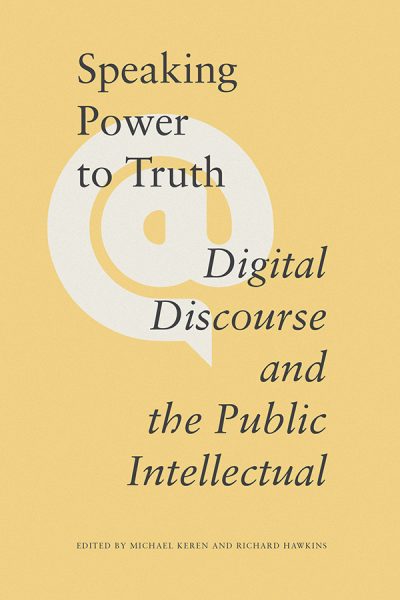Speaking Power to Truth
Editorial: AU Press
Licencia: Creative Commons (by-nc-nd)
Autor(es): Keren, Michael y Hawkins, Richard
Online discourse has created a new media environment for contributions to public life, one that challenges the social significance of the role of public intellectuals—intellectuals who, whether by choice or by circumstance, offer commentary on issues of the day. The value of such commentary is rooted in the assumption that, by virtue of their training and experience, intellectuals possess knowledge—that they understand what constitutes knowledge with respect to a particular topic, are able to distinguish it from mere opinion, and are in a position to define its relevance in different contexts. When intellectuals comment on matters of public concern, they are accordingly presumed to speak truth, whether they are writing books or op-ed columns or appearing as guests on radio and television news programs. At the same time, with increasing frequency, discourse on public life is taking place online. This new digital environment is characterized by abundance—an abundance of speakers, discussion, and access. But has this abundance of discourse—this democratization of knowledge, as some describe it—brought with it a corresponding increase in truth?
[Canada: 2015]
Compartir:
Una vez que el usuario haya visto al menos un documento, este fragmento será visible.


